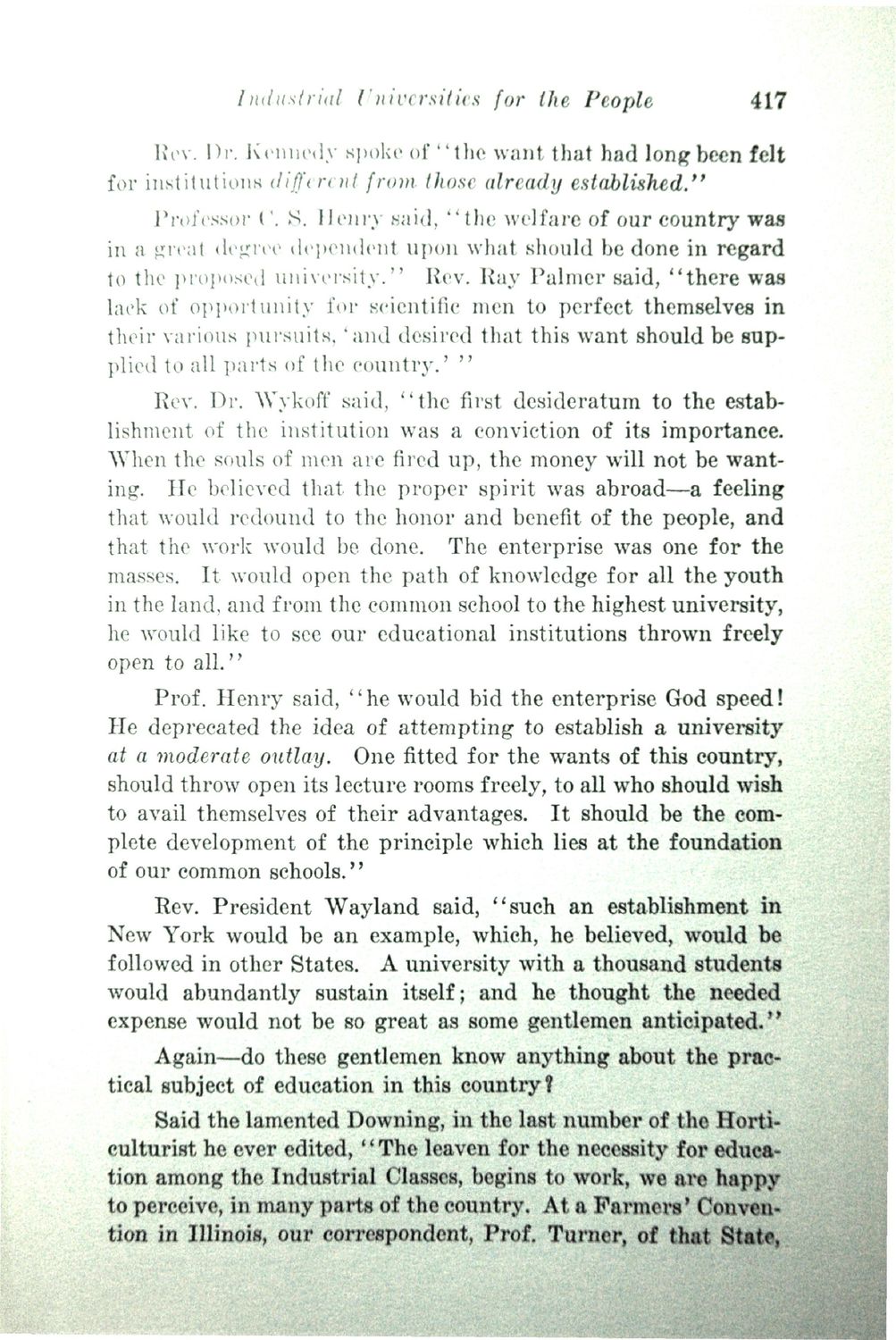| |
| |
Caption: Book - History of the University (Powell)
This is a reduced-resolution page image for fast online browsing.

EXTRACTED TEXT FROM PAGE:
Industrial Universities for the People 417 Rev. Dr. Kennedy spoke of * * the want that had long been felt for institutions different from those already established.99 Professor C. S. Henry said, "the welfare of our country was in a great degree dependent upon what should be done in regard to the proposed university.' 3 Rev. Ray Palmer said, "there was lack of opportunity for scientific men to perfect themselves in their various pursuits, 'and desired that this want should be supplied to all parts of the country.' " Rev. Dr. Wykoff said, "the first desideratum to the establishment of the institution was a conviction of its importance. When the souls of men are fired up, the money will not be wanting. He believed that the proper spirit was abroad—a feeling that would redound to the honor and benefit of the people, and that the work would be done. The enterprise was one for the masses. It would open the path of knowledge for all the youth in the land, and from the common school to the highest university, he would like to see our educational institutions thrown freely open to all." Prof. Henry said, '' he would bid the enterprise God speed! He deprecated the idea of attempting to establish a university at a moderate outlay. One fitted for the wants of this country, should throw open its lecture rooms freely, to all who should wish to avail themselves of their advantages. It should be the complete development of the principle which lies at the foundation of our common schools." Rev. President Wayland said, "such an establishment in New York would be an example, which, he believed, would be followed in other States. A university with a thousand students would abundantly sustain itself; and he thought the needed expense would not be so great as some gentlemen anticipated." Again—do these gentlemen know anything about the practical subject of education in this country? Said the lamented Downing, in the last number of the Horticulturist he f|||| edited,!' The leaven for &e necessity|j5or education among the Industrial Classes, begins to work, we are happy to perceive, in many parts of the c o ^ ^ p i | ^ ^ % Farmers' Convention in Illinois, our correspondcnt^rofcfTurner, of that State,
| |